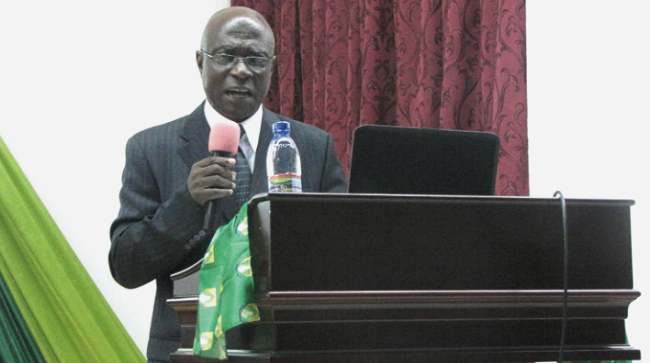
‘Check appointment of lecturers in multiple institutions’
The National Accreditation Board (NAB) has been advised to devise a system to check ‘academic galamsey’ that is gaining root in the Ghanaian university education system.
Advertisement
Speaking at the two-day maiden Professor John Evans Atta Mills Memorial Lectures, organised by the University of Health and Allied Sciences (UHAS), Professor Samuel Kofi Sefa-Dedeh of the Department of Food Process Engineering, School of Engineering Sciences, University of Ghana, described ‘academic galamsey’ as the appointment of a lecturer in multiple institutions.
He said the current trend, if not checked, would have dire consequences on higher learning in the country.
The lecture, organised on the theme: ‘Higher Education and its impact on development,’ was to honour the late President for his vision and contribution that led to the establishment of UHAS.
Causes of inefficiency
Prof. Sefa-Dedeh pointed out that “the normal teaching load is nine credit hours a week. In principle, all lecturers are to obtain permission from their institutions before accepting to work outside the administration,” stressing that “if that policy was working well, we will not have academic galamsey”.
Lecturers who engaged in ‘academic galamsey,’ he said, were overstretched and therefore their efficiency reduced which affected the students, who were denied further discussions on the topics for clearer understanding.
Apart from the effects on students and the institutions, Prof. Sefa-Dedeh said it also affected the lecturers’ own research outputs which went against them during promotions “and then they go to attack the vice chancellor of the institution”.
“The NAB using modern technologies can put in place a system to provide unique identification for each lecturer so that when a higher educational institution presents a programme for accreditation, the list of proposed lecturers can be verified to establish how many other institutions a particular name had also presented,” he said.
Human capacity dwindling
He also pointed out that the human resource capacity in higher education was dwindling as “the next generation of academics are no-where to be found”.
Prof. Sefa-Dedeh proposed what he described as a “strategic national action to intervene, otherwise we would establish new universities and there would be no lecturers to teach”.
He said there was the need for the repositioning of higher education in Ghana because it could cause change in society and lead to national development.
To raise skilled leaders to transform and develop the country, institutions of higher learning, he said, must produce graduates with skills and values that were relevant to create solutions to current challenges, and added that “a society with no values that underpin the behaviour and actions of its citizens will not see sustainable development”.
Review admission process
Touching on admission processes in the country, Prof. Sefa-Dedeh called for a review of the process to enable more students to improve themselves, stressing that the NAB, the National Council for Tertiary Education and other stakeholders, needed to dialogue on the admission process to create room for more students who desire to climb the academic ladder.
He paid glowing tribute to the late President Mills for his immense contribution to higher education, saying, “The legacy of Prof. Mills for establishing UHAS must be remembered because it was done with hard work and dedication.”




